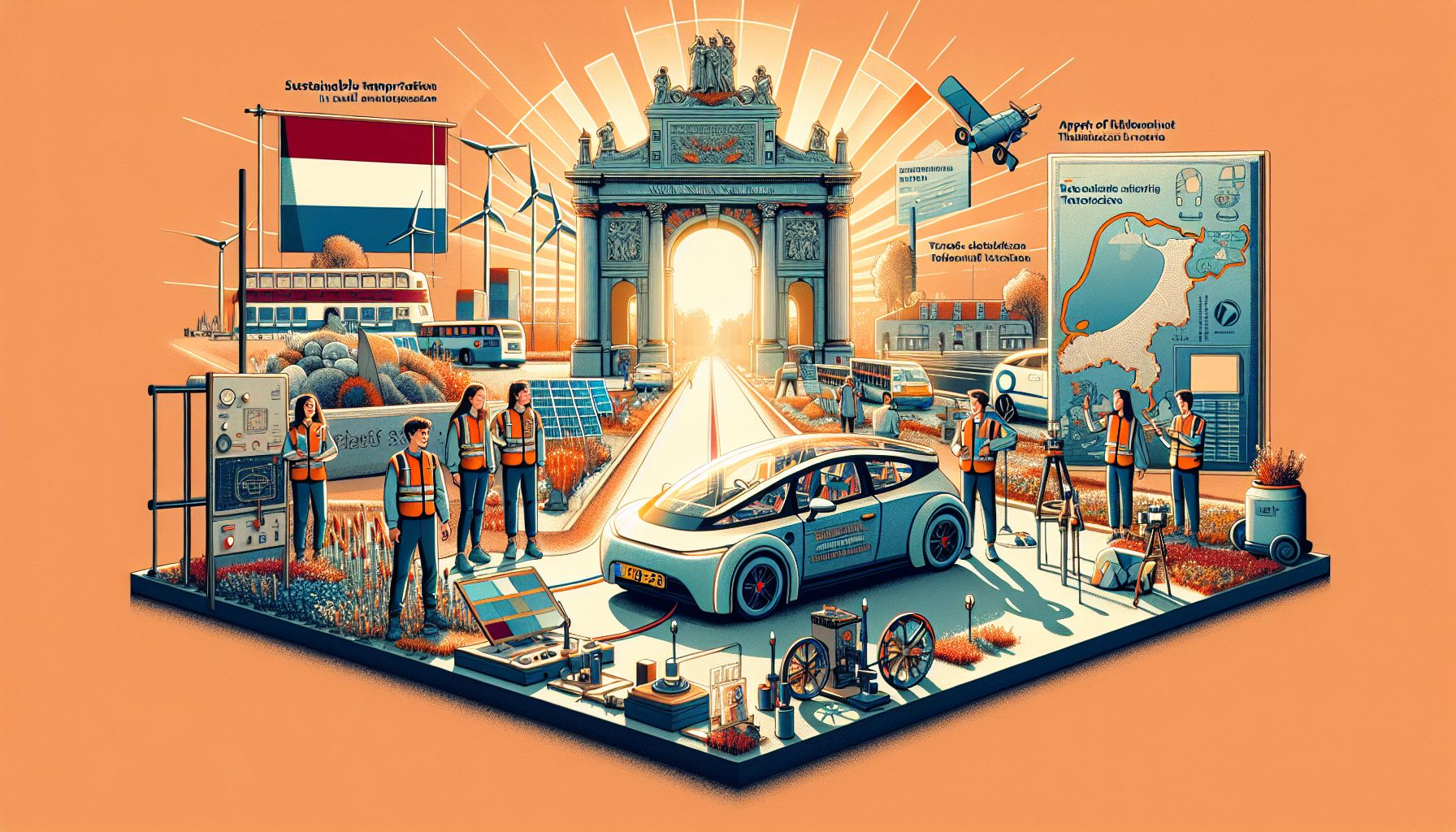Dutch Students Approved to Test Hydrogen Car on Public Roads

Students from TU Delft have received approval to test their self-built hydrogen car on public roads, marking a significant step for sustainable transportation innovations in the Netherlands.
A Milestone in Sustainable Mobility
This breakthrough comes after rigorous testing and validation by the Rijksdienst voor het Wegverkeer (RDW), a crucial step that ensures the vehicle meets the necessary safety and regulatory standards. The car, known as the Eco-Runner XIV, is a testament to the innovative spirit of the students at Delft University of Technology (TU Delft). It represents not just a technological achievement but also a commitment to addressing climate change through sustainable transportation solutions.
Pushing the Boundaries of Efficiency
The Eco-Runner XIV is designed to be the world’s most efficient hydrogen car, with the capability to travel 2056 kilometers on just 1.45 kilograms of hydrogen. This ambitious target aims to surpass the current record held by Toyota, which stands at 1360 kilometers on a single tank of hydrogen. The team plans to attempt this record by navigating the historic Elfstedentocht route in Friesland, a journey that underscores the urgency of finding sustainable alternatives to fossil fuels.
Highlighting Climate Change
The choice of the Elfstedentocht route is symbolic. The famous ice-skating marathon has not been held for 27 years due to insufficient ice thickness, a direct consequence of rising global temperatures. By driving this route, the students aim to draw attention to the impacts of climate change and the necessity for clean energy solutions. Hydrogen, when produced using renewable energy, offers a promising alternative with zero direct CO2 emissions.
Overcoming Challenges
The journey to getting the Eco-Runner XIV road-legal was not without its challenges. The team had to adapt their vehicle to meet stringent safety standards, including modifications to the braking system to ensure reliable performance even in the event of a system failure. Despite these hurdles, the team completed the required tests faster than anticipated, showcasing their engineering prowess and dedication.
A Legacy of Innovation
This achievement builds on the legacy of the Eco-Runner Team Delft, which has previously set world records with their hydrogen-powered vehicles. Last year, their Eco-Runner XIII drove 2488.5 kilometers on less than 1 kilogram of hydrogen, setting a new Guinness World Record. The team’s ongoing efforts are part of a broader mission to promote hydrogen as a viable and sustainable fuel for the future.
Looking Ahead
The approval to test their car on public roads marks a new chapter for the Eco-Runner Team Delft. By demonstrating the practicality and efficiency of hydrogen-powered vehicles in real-world conditions, they hope to inspire further research and investment in green technologies. Their work aligns with global efforts to reduce carbon emissions from the transportation sector, which is responsible for approximately 23% of all carbon emissions worldwide[1].
Conclusion
The TU Delft students’ achievement is a significant contribution to the ongoing quest for sustainable transportation. By pushing the boundaries of what is possible with hydrogen technology, they are paving the way for a cleaner, greener future. As they prepare to set a new world record, their journey serves as a powerful reminder of the innovative potential within the academic community to tackle some of the most pressing environmental challenges of our time.

